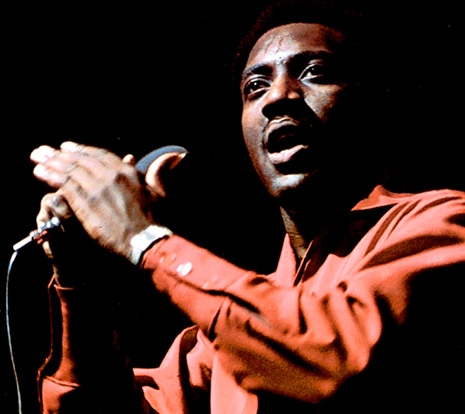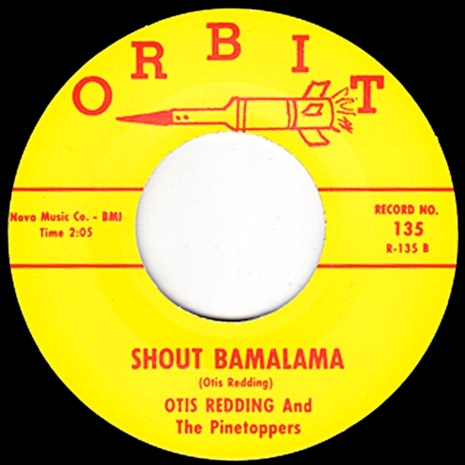
One could be forgiven, perhaps, for thinking that the ongoing national conversation (or racist jagoff chest-thumping tantrum, if you prefer) about the appropriateness of Confederate flag display is a new thing. But that point of view is ahistorical; this isn’t new, just newly launched into noisier, more vigorous debate. That symbol has been considered divisive and offensive for quite a long time.
For example, as early as 1961, that flag kept an early Otis Redding single from receiving airplay! Redding’s second single, the acutely Little Richard-ish “Fat Gal/Shout Bamalama,” was released in 1961 on a label called “Confederate Records,” an imprint owned by a young white Georgia car salesman named Bobby Smith. The center label on Confederate’s releases, unsurprisingly, was a design based on the Confederate flag, which all by itself was a good enough reason for R&B DJs to utterly disregard the single. From an article in the December, 2007 issue of Atlanta magazine:
A rebel flag crisscrosses the first vinyl single of “Shout Bamalama,” released by the Confederate Records label in 1961. Consequently, African American disc jockeys chucked it into the trash without bothering to listen. Had they put the needle to the groove, they would’ve heard Otis Redding belting out his jump-blues tribute to Bamalama, a one-eyed busker who played a washboard with a thimble. It was another inauspicious break for the Macon vocalist, who was reportedly booed off the stage, in tears, the first time he performed outside of church.

Georgia had incorporated that flag into its own in 1956, as an explicit thumbs-up to white supremacy and segregation. Having been advised that adopting it as a logo for his wares was doing him no favors with his intended audience, the no longer so clueless Smith reissued the recording on Orbit Records, an ad hoc label he started for the sole purpose of getting the pariah Dixie flag off of Redding’s single. Per Smith himself:
Otis and I went on the road promoting “Shout Bamalama”. Stopping at Augusta radio station WTHB, we were told by the DJ it would be played if it were taken off the Confederate-flagged record label. I promised to do so. We went on to Columbia, SC and met with a program director, Big Saul at radio station WOIC, who also promised heavy play, but only if the label was changed. Otis and I hit it off very well with Big Saul. As we drove and listened to legendary DJ John R on Nashville ’s WLAC, Otis said, “Bobby, if that man played my record I would think I had made it”. When we returned to Macon, I wasted no time creating the Orbit label and putting “Shout Bamalama” on it. The following week I went to Nashville and talked to John R, and I explained the situation with Confederate and Orbit. John R was impressed with the record and promised me he would give it heavy duty air play.

No version of the record would get much attention, let alone “heavy duty airplay,” but that would all be moot soon enough, as Smith would amicably part ways with Redding in 1962, when Redding leveled up to record for labels like Stax/Volt and Atlantic/Atco (neither of which sported the banners of states that committed treason in the name of preserving a human trafficking economy and surrendered unconditionally 100 years prior). And then, of course, rock history 101 happened, and Redding’s excellent Monterey International Pop Music Festival appearance brought him mass-audience attention, just six months before his tragic death in a plane crash at the age of 26 robbed the world of his potential.
Here’s that single, “Fat Gal” backed with “Shout Bamalama.”
Bonus! Check out the early Redding song which was the basis for “Shout Bamalama,” “Gamma Lama.”
Gratitude to Art Chantry for bringing this to our attention.